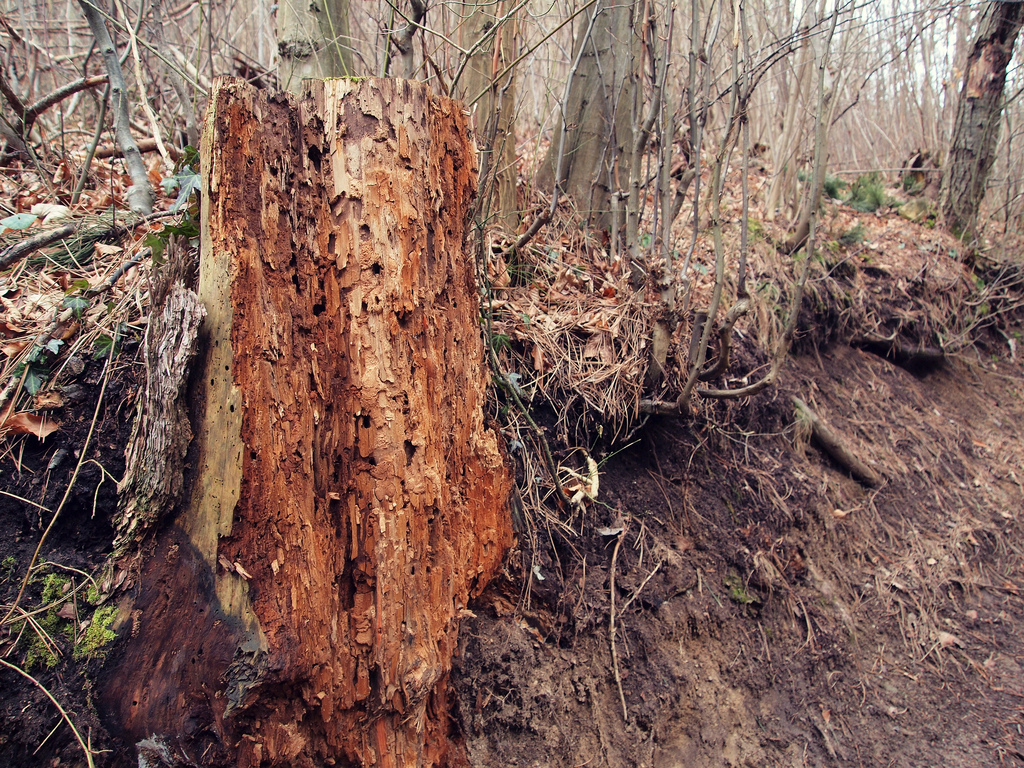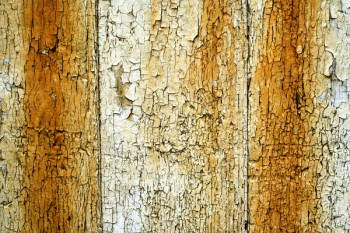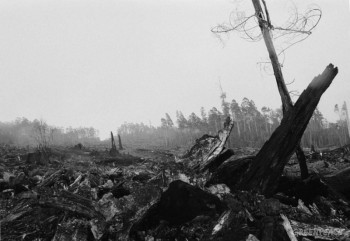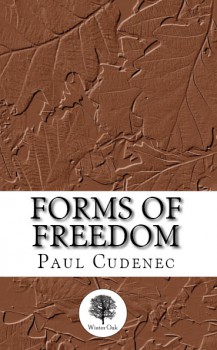
Before we started to be excluded from the land, we enjoyed a freedom to live as part of the fauna of the planet. We enjoyed a relationship with the land that answered our needs as human beings, enabling us to live freely according to our own natures.
This does not mean that life was perfect, or that life could ever be perfect. Human beings are flawed in the same way that all nature is flawed. But at the same time the beauty of nature includes these flaws, even depends on them. The flaws form part of reality, natural reality, and so do not strike us as being ugly.
A withered branch, a tangled vine, a crumbling bank – these do not detract from the beauty of nature, but enhance it. The same applies to products of human labour. A medieval stone farmhouse with bulging walls, sagging roof and decaying window frames is not ugly. In fact, its imperfection is beautiful. Its imperfection is itself a kind of perfection, without any need for a certain regularity and smoothness with which we have come to associate that term.
Such is also the case for humanity itself. We are not perfect in the sense that a computer or a robot might be perfect. We all make mistakes, misjudge situations, behave in ways that we later regret. That is what being human is all about. That is what makes humanity beautiful, what makes life beautiful. It is our freedom to be ourselves, with all our flaws, that constitutes our humanity.
So the idea of a human existence within nature should not be confused with any unreal conception of what this way of life might be like. It is the reality of a life connected to the land which constitutes its beauty. Moreover, immersion in that complex, subtle reality constitutes freedom.
Contemporary culture sets the idea of nature apart from humanity. It is treated as something to be treasured maybe (at the same time as being mastered…), something to be protected, looked-at and visited (at the same time as being exploited…), but always as a thing, or a collection of things, which does not include humanity.
We cannot stop being part of nature, because that is our reality, but we can cease to realise that we are part of nature. This results in a gap, a discrepancy, between reality and our understanding of reality. Any such gap is dangerous, because our decision-making – individually and collectively – is not based on a true understanding of reality.
This is plain to see with regards to the direction human civilization has taken. Non-human beings are treated as objects. The living structure of nature – the reality in which we exist – is regarded as an impediment to human interests and is ripped up, torn apart and destroyed.
Like a man perched high up in a tree, sawing off the very branch on which he is sitting, we have lost sight of our own reality, with disastrous consequences. When we destroy nature, we destroy ourselves. We destroy our own freedom, too, because that freedom emerges from and depends on that nature of which we are part.
What sort of freedom could there be for humanity if the surface of our planet became uninhabitable? To be “free from nature” – which is the motivating desire behind the delusion of industrial “progress” – is to be free from reality and, ultimately and logically, to be free from existence, from life. For a species which is biologically part of nature, to be free from nature simply equals death.
[Excerpt from Forms of Freedom]


